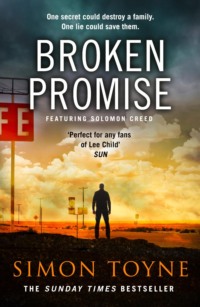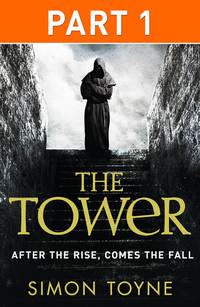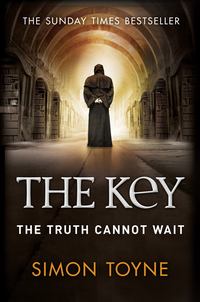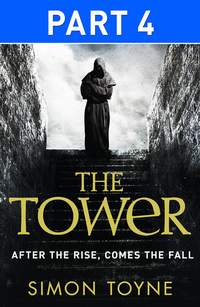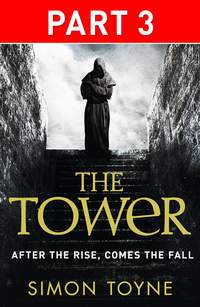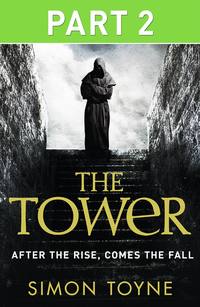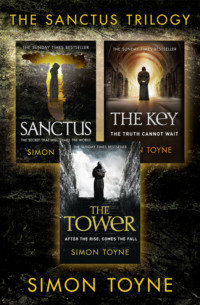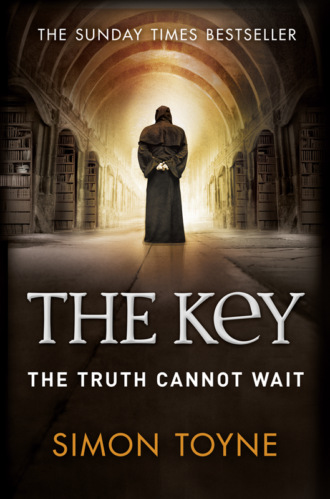
Полная версия
Sanctus and The Key: 2 Bestselling Thrillers

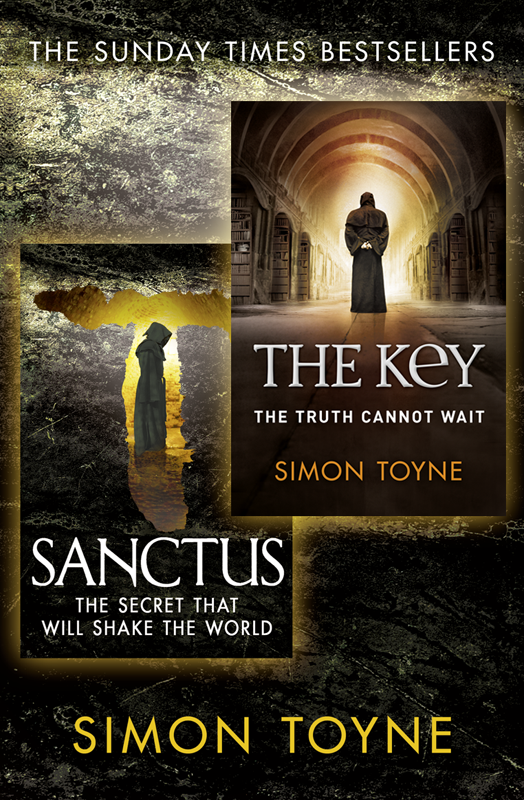
TWO BESTSELLING THRILLERS: SANCTUS & THE KEY
Simon Toyne

Table of Contents
Title Page
Sanctus
The Key
Also by Simon Toyne
About the Author
Copyright
About the Publisher
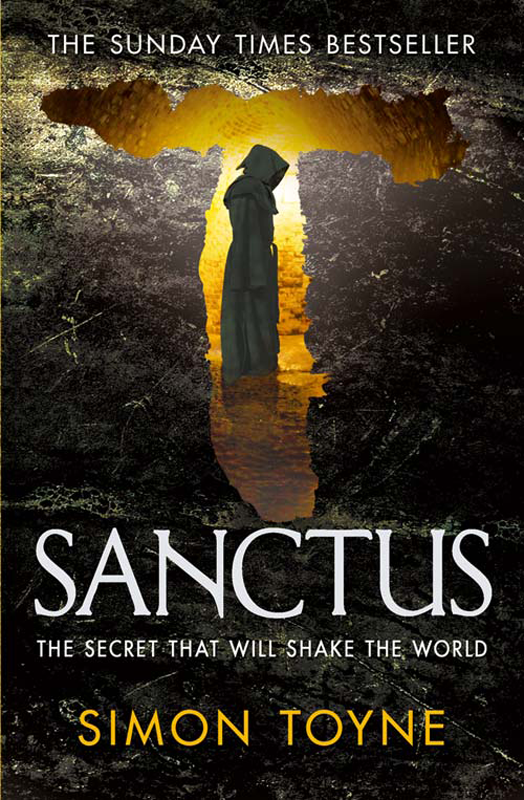


To K For the adventure
Table of Contents
Title Page
Dedication
Map
Part I
Chapter 1
Chapter 2
Chapter 3
Chapter 4
Chapter 5
Chapter 6
Chapter 7
Chapter 8
Chapter 9
Chapter 10
Chapter 11
Chapter 12
Chapter 13
Chapter 14
Chapter 15
Chapter 16
Chapter 17
Chapter 18
Chapter 19
Chapter 20
Chapter 21
Chapter 22
Chapter 23
Chapter 24
Chapter 25
Chapter 26
Chapter 27
Chapter 28
Chapter 29
Part II
Chapter 30
Chapter 31
Chapter 32
Chapter 33
Chapter 34
Chapter 35
Chapter 36
Chapter 37
Chapter 38
Chapter 39
Chapter 40
Chapter 41
Chapter 42
Chapter 43
Chapter 44
Chapter 45
Chapter 46
Chapter 47
Chapter 48
Chapter 49
Part III
Chapter 50
Chapter 51
Chapter 52
Chapter 53
Chapter 54
Chapter 55
Chapter 56
Chapter 57
Chapter 58
Chapter 59
Chapter 60
Chapter 61
Chapter 62
Chapter 63
Chapter 64
Chapter 65
Chapter 66
Chapter 67
Chapter 68
Part IV
Chapter 69
Chapter 70
Chapter 71
Chapter 72
Chapter 73
Chapter 74
Chapter 75
Chapter 76
Chapter 77
Chapter 78
Chapter 79
Chapter 80
Chapter 81
Chapter 82
Chapter 83
Chapter 84
Chapter 85
Chapter 86
Chapter 87
Chapter 88
Chapter 89
Chapter 90
Chapter 91
Chapter 92
Chapter 93
Chapter 94
Chapter 95
Chapter 96
Chapter 97
Chapter 98
Chapter 99
Part V
Chapter 100
Chapter 101
Chapter 102
Chapter 103
Chapter 104
Chapter 105
Chapter 106
Chapter 107
Chapter 108
Chapter 109
Chapter 110
Chapter 111
Chapter 112
Chapter 113
Chapter 114
Chapter 115
Chapter 116
Chapter 117
Chapter 118
Chapter 119
Chapter 120
Chapter 121
Part VI
Chapter 122
Chapter 123
Chapter 124
Chapter 125
Chapter 126
Chapter 127
Chapter 128
Chapter 129
Chapter 130
Chapter 131
Chapter 132
Chapter 133
Chapter 134
Chapter 135
Chapter 136
Chapter 137
Chapter 138
Chapter 139
Chapter 140
Chapter 141
Chapter 142
Chapter 143
Chapter 144
Part VII
Chapter 145
Chapter 146
Chapter 147
Acknowledgements
Copyright
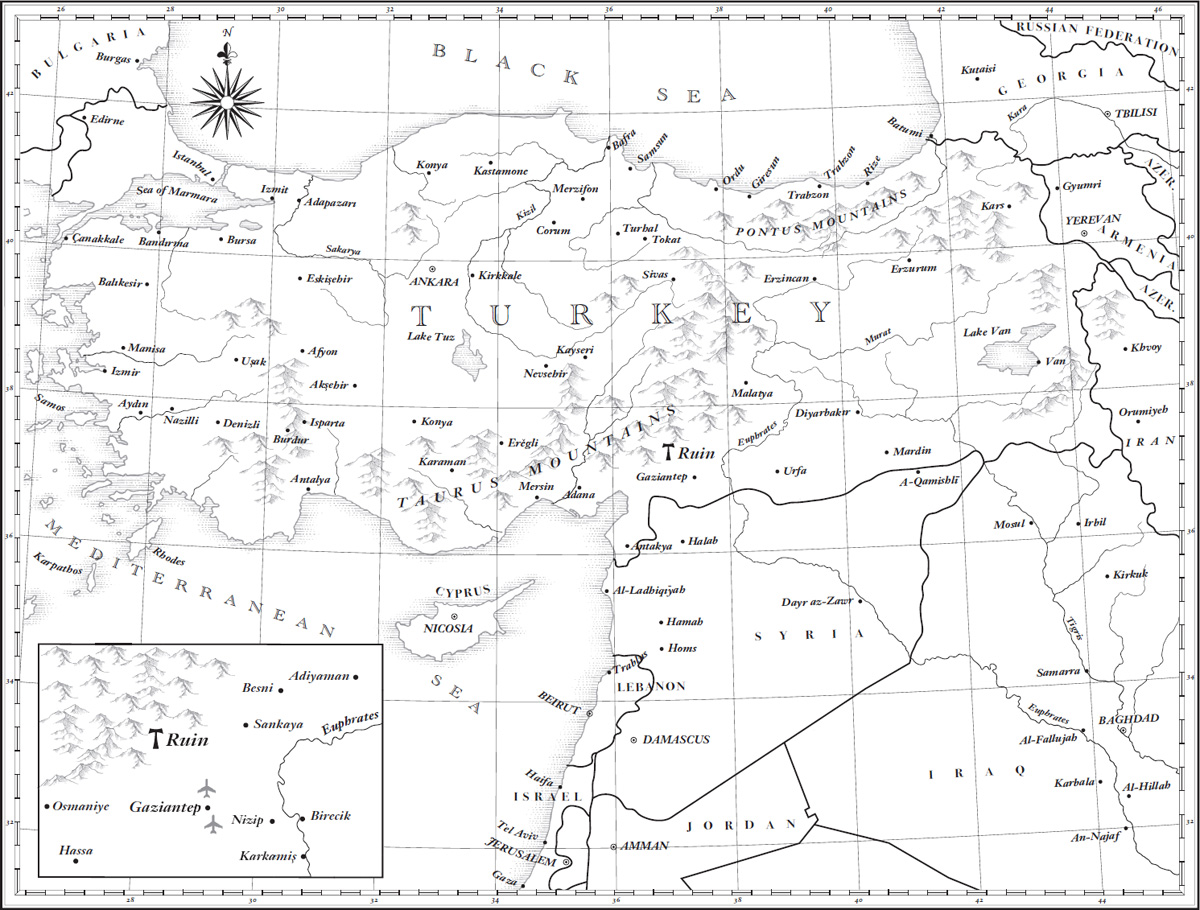
I
A man is a god in ruins
RALPH WALDO EMERSON
1
A flash of light filled his skull as it struck the rock floor.
Then darkness.
He was dimly aware of the heavy oak door banging shut behind him and a thick batten sliding through iron hasps.
For a while he lay where he’d been thrown, listening to the pounding of his pulse and the mournful wind close by.
The blow to his head made him feel sick and dizzy, but there was no danger he was going to pass out; the agonizing cold would see to that. It was a still and ancient cold, immutable and unforgiving as the stone the cell was carved from. It pressed down and wrapped itself round him like a shroud, freezing the tears on his cheeks and beard, chilling the blood that trickled from the fresh cuts he himself had inflicted on his exposed upper body during the ceremony. Pictures tumbled through his mind, images of the awful scenes he had just witnessed and of the terrible secret he had learned.
It was the culmination of a lifetime of searching. The end of a journey he had hoped would lead to a sacred and ancient knowledge, to a divine understanding that would bring him closer to God. Now at long last he had gained that knowledge, but he had found no divinity in what he had seen, only unimaginable sorrow.
Where was God in this?
The tears stung fresh and the cold sank deeper into his body, tightening its grip on his bones. He heard something on the other side of the heavy door. A distant sound. One that had somehow managed to find its way up through the honeycomb of hand-carved tunnels which riddled the holy mountain.
They’ll come for me soon.
The ceremony will end. Then they will deal with me …
He knew the history of the order he had joined. He knew their savage rules – and now he knew their secret. They’d kill him for sure. Probably slowly, in front of his former brothers, a reminder of the seriousness of their collective, uncompromising vows: a warning of what would happen if you broke them.
No!
Not here. Not like this.
He pressed his head against the cold stone floor then pushed himself up on all fours. Slowly and painfully he dragged the rough green material of his cassock back over his shoulders, the coarse wool scouring the raw wounds on his arms and chest. He pulled the cowl over his head and collapsed once more, feeling his warm breath through his beard, drawing his knees tightly under his chin and lying clenched in the foetal position until the warmth began to return to the rest of his body.
More noises echoed from somewhere within the mountain.
He opened his eyes and began to focus. A faint glow of distant light shone through a narrow window just enough to pick out the principal features of his cell. It was unadorned, rough-hewn, functional. A pile of rubble lay strewn across one corner, showing it was one of the hundreds of rooms no longer regularly used or maintained in the Citadel.
He glanced back at the window; little more than a slit in the rock, a loophole carved countless generations earlier to give archers a vantage point over enemy armies approaching across the plains below. He rose stiffly to his feet and made his way towards it.
Dawn was still some way off. There was no moon, just distant stars. Nevertheless when he looked through the window the sudden glare was enough to make him squint. It came from the combined light of tens of thousands of street lamps, advertising hoardings and shop signs stretching out far below him towards the rim of distant mountains surrounding the plain on all sides. It was the fierce and constant glow of the modern city of Ruin, once the capital of the Hittite Empire, now just a tourist destination in southern Turkey, on the furthest edge of Europe.
He looked down at the metropolitan sprawl, the world he had turned his back on eight years previously in his quest for truth, a quest that had led him to this lofty, ancient prison and a discovery that had torn apart his soul.
Another muffled sound. Closer this time.
He had to be quick.
He unthreaded the rope belt from the leather loops of his cassock. With a practised dexterity he twisted each end into a noose then stepped to the window and leaned through, feeling the frozen rock face for a crag or outcrop that might hold his weight. At the highest point of the opening he found a curved protrusion, slipped one noose around it and leaned back, tightening it, testing its strength.
It held.
Tucking his long, dirty blonde hair behind his ears he gazed down one last time at the carpet of light pulsating beneath him. Then, his heart heavy from the weight of the ancient secret he now carried, he breathed out as far as his lungs would allow, squeezed through the narrow gap, and launched himself into the night.
2
Nine floors down, in a room as grand and ornate as the previous one was meagre and bare, another man delicately washed the blood from his own freshly made cuts.
He knelt in front of a cavernous fireplace, as if in prayer. His long hair and beard were silvered with age and the hair on top of his head was thin, giving him a naturally monastic air in keeping with the green cassock gathered about his waist.
His body, though stooped with the first hint of age, was still solid and sinewy. Taut muscles moved beneath his skin as he dipped his square of muslin methodically into the copper bowl beside him, gently squeezing out the cool water before dabbing his weeping flesh. He held the poultice in place for a few moments each time, then repeated the ritual.
When the cuts on his neck, arms and torso had started to heal he patted himself dry with fresh, soft towels and rose, carefully pulling his habit back over his head, feeling the strangely comforting sting of his wounds beneath the coarse material. He closed his pale grey eyes, the colour of parched stone, and took a deep breath. He always felt a profound sense of calm immediately after the ceremony, a sense of satisfaction that he was upholding the greatest tradition of his ancient order. He tried to savour it for as long as possible before his temporal responsibilities dragged him back to the earthbound realities of his office.
A timid knock on the door disturbed this reverie.
Tonight his beatific mood was obviously going to be short-lived.
‘Enter.’ He reached for the rope belt draped over the back of a nearby chair.
The door opened, catching the light from the crackling fire on its carved and gilded surface. A monk slipped silently into the room, gently closing the door behind him. He too wore the green cassock and long hair and beard of their ancient order.
‘Brother Abbot …’ His voice was low, almost conspiratorial. ‘Forgive my intrusion at this late hour – but I thought you should know immediately.’
He dropped his gaze and studied the floor, as if uncertain how to continue.
‘Then tell me immediately,’ growled the Abbot, tying the belt round his waist and tucking in his Crux – a wooden cross in the shape of the letter ‘T’.
‘We have lost Brother Samuel …’
The Abbot froze.
‘What do you mean, “lost”? Has he died?’
‘No, Brother Abbot. I mean … he is not in his cell.’
The Abbot’s hand tightened on the hilt of his Crux until the grain of the wood pressed into his palm. Then, as logic quickly allayed his immediate fears, he relaxed once more.
‘He must have jumped,’ he said. ‘Have the grounds searched and the body retrieved before it is discovered.’
He turned and adjusted his cassock, expecting the man to hurry from the room.
‘Forgive me, Brother Abbot,’ the monk continued, staring more intently at the floor, ‘but we have already conducted a thorough search. We informed Brother Athanasius the moment we discovered Samuel was missing. He made contact with the outside and they instigated a sweep of the lower foundations. There’s no sign of a body.’
The calmness the Abbot had enjoyed just a few minutes previously had now entirely evaporated.
Earlier that night Brother Samuel had been inducted into the Sancti, the inner circle of their order; a brotherhood so secret only those living within the cloistered halls of the mountain knew of its continued existence. The initiation had been carried out in the traditional manner, finally revealing to the groomed monk the ancient Sacrament, the holy secret their order had been formed to protect and maintain. Brother Samuel had demonstrated during the ceremony that he was not equal to this knowledge. It was not the first time a monk had been found wanting at the moment of revelation. The secret they were bound to keep was powerful and dangerous, and no matter how thoroughly the newcomer had been prepared, when the moment came it was sometimes simply too much. Regrettably, someone who possessed the knowledge but could not carry the burden of it was almost as dangerous as the secret itself. At such times it was safer, perhaps even kinder, to end that person’s anguish as quickly as possible.
Brother Samuel had been such a case.
Now he had gone missing.
As long as he was at liberty, the Sacrament was vulnerable.
‘Find him,’ the Abbot said. ‘Search the grounds again, dig them up if you have to, but find him.’
‘Yes, Brother Abbot.’
‘Unless a host of angels passed by and took pity on his wretched soul he must have fallen and he must have fallen nearby. And if he hasn’t fallen then he must be somewhere in the Citadel. So secure every exit and conduct a room-by-room sweep of every crumbling battlement and bricked-up oubliette until you find either Brother Samuel or Brother Samuel’s body. Do you understand me?’
He kicked the copper bowl into the fire. A cloud of steam erupted from its raging heart, filling the air with an unpleasant metallic tang. The monk continued to stare at the floor, desperate to be dismissed, but the Abbot’s mind was elsewhere.
As the hissing subsided and the fire settled, so it seemed did the Abbot’s mood.
‘He must have jumped,’ he said at length. ‘So his body has to be lying somewhere in the grounds. Maybe it got caught in a tree. Perhaps a strong wind carried it away from the mountain and it now lies somewhere we have not yet thought to look; but we need to find it before dawn brings the first coachload of gawping interlopers.’
‘As you wish.’
The monk bowed and made ready to leave, but a knock on the door startled him afresh. He looked up in time to see another monk sweep boldly into the room without waiting for the Abbot to bid him enter. The new arrival was small and slight, his sharp features and sunken eyes giving him a look of haunted intelligence, like he understood more than he was comfortable with; yet he exuded quiet authority, even though he wore the brown cassock of the Administrata, the lowliest of the guilds within the Citadel. It was the Abbot’s chamberlain, Athanasius, a man instantly recognizable throughout the mountain because, uniquely among the ritually long-haired and bearded men, he was totally bald due to the alopecia he had suffered since the age of seven. Athanasius glanced at the Abbot’s companion, saw the colour of his cassock and quickly averted his eyes. By the strict rules of the Citadel the green cloaks – the Sancti – were segregated. As the Abbot’s chamberlain, Athanasius very occasionally crossed paths with one, but any form of communication was expressly forbidden.
‘Forgive my intrusion, Brother Abbot,’ Athanasius said, running his hand slowly across his smooth scalp, as he did in times of stress. ‘But I beg to inform you that Brother Samuel has been found.’
The Abbot smiled and opened his arms expansively, as if preparing to warmly embrace the news.
‘There you are,’ he said. ‘All is well again. The secret is safe and our order is secure. Tell me, where did they find the body?’
The hand continued its slow journey across the pale skull. ‘There is no body,’ he paused. ‘Brother Samuel did not jump from the mountain. He climbed out. He is about four hundred feet up, on the eastern face.’
The Abbot’s arms dropped to his sides, his expression darkening once more.
In his mind he pictured the granite wall springing vertically from the glacial plain of the valley, making up one side of the holy fortress.
‘No matter.’ He gave a dismissive wave. ‘It is impossible to scale the eastern face, and there are still several hours till daybreak. He will tire well before then and fall to his death. And even if by some miracle he does manage to make it to the lower slopes, our brethren on the outside will apprehend him. He will be exhausted by such a climb. He will not offer them much resistance.’
‘Of course, Brother Abbot,’ Athanasius said. ‘Except …’ He continued to smooth down hair that had long since departed.
‘Except what?’ the Abbot snapped.
‘Except Brother Samuel is not climbing down the mountain.’ Athanasius’s palm finally separated itself from the top of his head. ‘He’s climbing up it.’
3
The black wind blew through the night, sliding across the high peaks and the glacier to the east of the city, sucking up its prehistoric chill with fragments of grit and moraine freed by the steady thaw.
It picked up speed as it dipped down into the sunken plain of Ruin, cupped like a huge bowl within an unbroken ring of jagged peaks. It whispered through the ancient vineyards, olive groves and pistachio orchards that clung to the lower slopes, and on towards the neon and sodium glow of the urban sprawl where it had once flapped the canvas and tugged at the red-and-gold sun flag of Alexander the Great and the Vexillum of the fourth Roman legion and all the standards of every frustrated army that had clustered in shivering siege round the tall dark mountain while their leaders stared up, coveting the secret it contained.
The wind swept on now, keening down the wide straight highway of the eastern boulevard, past the mosque built by Suleiman the Magnificent and across the stone balcony of the Hotel Napoleon where the great general had stood, listening to his army ransacking the city below while he stared up, surveying the carved stone battlements of the dark dagger mountain that would remain unconquered, piercing the flank of his incomplete empire and haunting his dreams as he later lay dying in exile.
The wind moaned onwards, cascading over the high walls of the old town, squeezing through streets built narrow to hamper the charge of armoured men, slipping past ancient houses filled to the beams with modern mementoes, and rattling tourist signs that now swung where the mouldering bodies of slaughtered enemies had once dangled.
Finally it leapt the embankment wall, soughed through grass where a black moat once flowed and slammed into the mountain where even it could gain no access until, swirling skywards, it found a lone figure in the dark green habit of an order not seen since the thirteenth century, moving slowly and inexorably up the frozen rock face.
4
Samuel had not climbed anything as challenging as the Citadel for a long, long time. Thousands of years of hail and sleet-filled wind had smoothed the surface of the mountain to an almost glassy finish, giving him virtually no hold as he worked his way painstakingly to its summit.
Then there was the cold.
The icy wind that had smoothed the rock over aeons had also chilled its heart. His skin froze to it on contact, giving him a few moments’ valuable traction, until he had to tear it free again, leaving his hands and knees bloody and raw. The wind gusted about him, tugging at his cassock with invisible fingers, trying to pluck him away and down to a dark death.
The rope belt wrapped around his right arm rubbed the skin from his wrist as he repeatedly threw it high and wide toward tiny outcrops that were otherwise beyond his reach. He pulled hard each time, closing the noose around whatever scant anchor he had snagged, willing it not to slip or break as he inched further up the unconquerable monolith.
The cell he had escaped from had been close to the chamber where the Sacrament was held, in the uppermost section of the Citadel. The higher he managed to get, the less he risked coming within reach of other cells where his captors might be waiting.
The rock which had up to this point been hard and glassy became suddenly jagged and brittle. He had crossed an ancient geological stratum to a softer layer that had been weakened and split by the cold that had tempered the granite below. There were deep fissures in its surface, making it easier to climb but infinitely more treacherous. Foot- and handholds crumbled without warning; fragments of stone tumbled down into the frozen darkness. In fear and desperation he jammed his hands and feet deep into the jagged crevices; they held his weight but were lacerated in the process.
As he moved higher and the wind strengthened, the cliff face began to arch back on itself. Gravity, which had previously aided his grip, now wrested him away from the mountain. Twice, when a sliver of rock broke away in his hand, the only thing that stopped him from plummeting a thousand feet was the rope bound to his wrist and the powerful conviction that the journey of his life was not yet over.
Finally, after what seemed like a lifetime of climbing, he reached up for his next handhold and felt only air. His hand fell forward on to a plateau across which the wind flowed freely into the night.
He gripped the edge and dragged himself up. He pushed against crumbling footholds with numb and shredded feet and heaved his body on to a stone platform as cold as death, felt the limits of the space with his outstretched hands and crawled to its centre, keeping low to avoid the worst of the buffeting wind. It was no bigger than the room he had so recently escaped, but whilst there he had been a helpless captive; up here he felt like he always had when he’d conquered an insurmountable peak – elated, ecstatic, and unutterably free.


